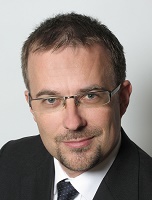Interview with Dr Peter Makara : Slovak Republic
 Dr Peter Makara is Host Organizing Committee Chair for the WONCA Europe conference coming to the Slovak Republic in June 2019. He is President of the Slovak Society of General Practice.
How do you view the position of GPs in Slovakia in comparison with other European countries?
Dr Peter Makara is Host Organizing Committee Chair for the WONCA Europe conference coming to the Slovak Republic in June 2019. He is President of the Slovak Society of General Practice.
How do you view the position of GPs in Slovakia in comparison with other European countries?
According to our information and based on our conversations with our colleagues from abroad, the position of GPs in Slovakia is one of the weakest. In spite of that, according to unofficial surveys, GPs in Slovakia enjoy a great deal of trust from their patients. Our aim is to convince politicians to turn their declared support for primary care, to real acts.
What may inspire our GPs at the WONCA conference and how in turn may Slovak GPs serve as an inspiration to foreign participants?
To our GPs, WONCA has given an opportunity to participate in a European congress of GPs on home grounds and learn/confront themselves firsthand, about how GPs around the world operate. Foreign participants will get the opportunity to visit our practices.
As mentioned a recent survey shows that GPs in Slovakia enjoy an 80 – 90% trust rating from their patients. This on the one hand, represents a commitment and, on the other hand, significantly improves doctor – patient communication. Only doctors who have won trust can best help their patients. This trust must be built constantly.
A family doctor, a general practitioner, a medical practitioner – the name of a professional providing primary care varies in different parts of Europe. How important is it for the patient?
The name is a result of a historical development and, in many countries, the general practitioner (GP) looks after the entire families, the children, pregnancies, parents and grandparents. Historically, in Slovakia, children have been looked after by paediatricians. Therefore, GPs in Slovakia take over the patients only after they reached adulthood. We do not want to change this system but we believe that a patient should register with a general medical practitioner as soon as possible after reaching adulthood.
According to the findings of the World Bank, in Slovakia, GPs are involved in the management of the patient in 70% of cases and 30% are referred to a specialist. However, the standard abroad is up to 90%. Is the achievement of this figure in Slovakia realistic and desirable? (aren´t the GPs already quite overburdened?)
In my opinion, it is realistic to significantly reduce the percentage of referrals to specialists by removing barriers in patient care. In Slovakia, the prescription of a large number of medicines, medical devices, biochemical tests, CT scans, MRI scans can only be obtained through a referral to a specialist. I am convinced that by removing these barriers, the burden on doctors will not increase and it might even decrease. On the other hand, in the current situation, we are not able to assume all the responsibilities as in some countries, such as paediatric care, care of pregnant women, performance of “minor” surgical procedures in our offices because we are not equipped or trained for this at all.
Why is the enforcement of the requirements that improve position of general practice not only in the interest of health professionals but especially in the interest of patients?
By organising this conference, we want to draw the attention of the media, the politicians and the Ministry to the need to build primary care and improve the working conditions of GPs because primary care provides accessible and high-quality health care for all, in particular in the context of an ageing population and an epidemic non-communicable diseases such as hypertension, diabetes, cancer, etc.
What does the human aspect of medicine mean to you personally?
In recent years, the administrative burden and the introduction of new duties have been increasing constantly in Slovakia: stealing time which the doctor could devote to their patients. The human aspect of primary care medicine also includes the time to talk and listen to the patients, to prepare tailor-made plans for examinations, treatments or lifestyle changes and not only to measure physiological functions, prescribe medicines and report/charge the services to the health insurance company.
